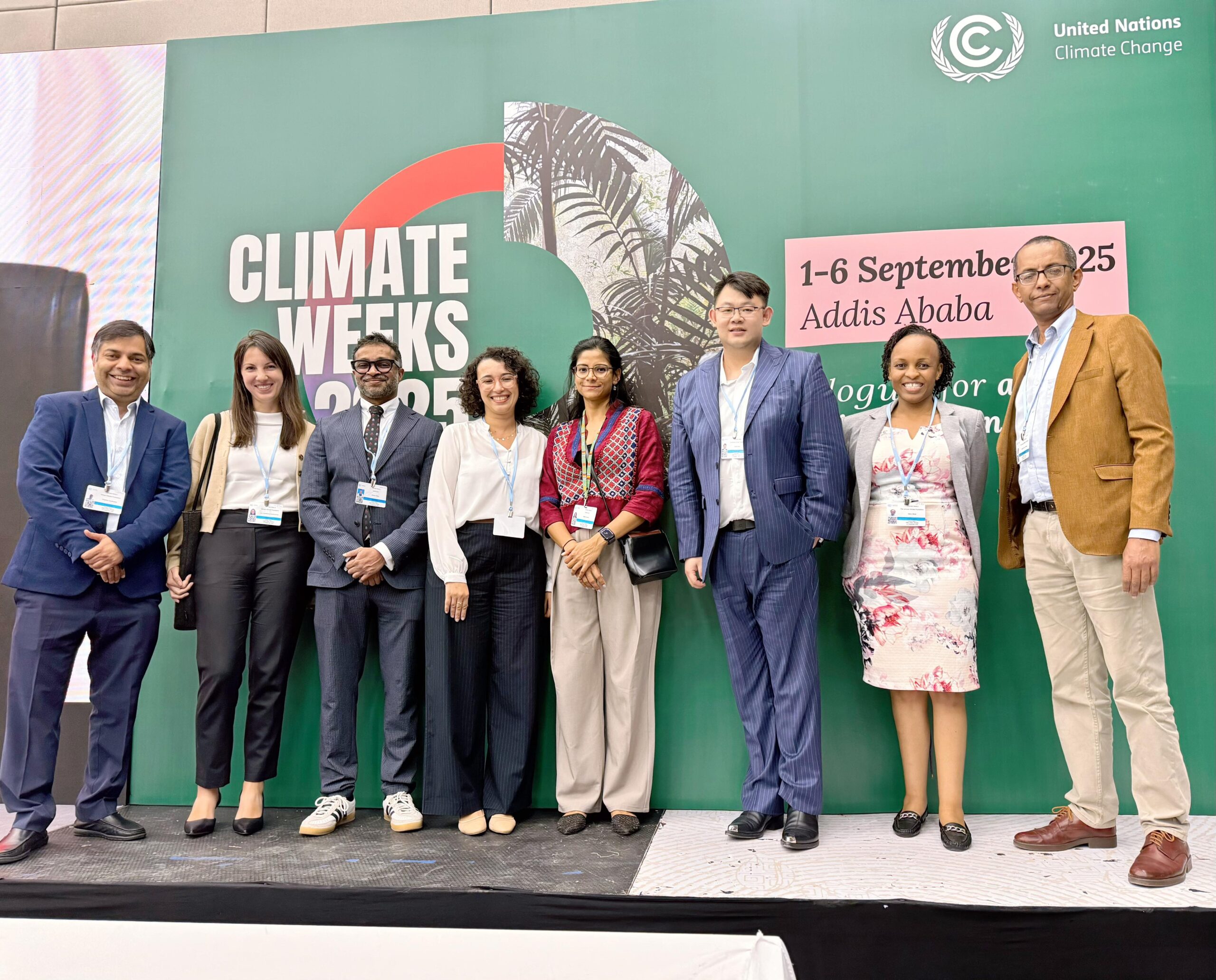Saliem Fakir, Executive Director of the African Climate Foundation, reflects on 2024 and notes preparations for 2025.
2024 has been a momentous year for the African Climate Foundation (ACF). We’ve grown significantly, but it’s not just about size – it’s about the impact we’re driving. Our focus remains on achieving tangible outcomes in the real economy while aligning advocacy, policy and movement-building to scale the solutions Africa needs. Our programmes drive real, sustainable solutions, and ACF will increasingly aim to participate in the real economy. You will see more of this next year.
A critical part of our journey in 2024 has been fostering political support across society, especially through strong leadership and capacity within the relevant governments, civil society, community-based organisations, think-tanks, and businesses.
This groundwork enables us to build an ecosystem of change-makers that will continue to seek outcomes that serve the public interest. We continue to prioritise providing different types of support and investment platforms that can draw in new climate investments in mitigation and adaptation.
Over the past four years, we’ve gained profound insights into Africa’s diverse political, institutional and economic systems to ensure we can deliver tailored-made approaches. We continue to learn, invest, and gain a better understanding of how to make climate and development objectives work on the continent.
Through this learning, the ACF has developed a distinctly African approach to climate and development – one deeply attuned to the continent’s needs. While contributions from outside Africa are valuable, our strength lies in the localised, country-specific nature of our work. We’re not fully there yet, but the progress we’ve made positions us to expand our scope and impact even further in 2025.
We continue to expand our partnerships within and outside Africa. We are looking to revitalise and, in many cases, build new capabilities to ensure African-led models and approaches to climate and development are fostered. We will continue to emphasise that it is not just about emissions, but economic resilience. Sometimes, this point is never appreciated enough. Africa’s future lies in defining the path to a different economic model and the ability of Africans to define it for themselves. All levels of society should enjoy a say in what this looks like.
Even without climate finance or investment, diversification remains crucial for Africa’s sustainable growth. The African Continental Free Trade Area (AfCFTA) agreement presents a unique opportunity to enhance inter-regional trade, foster economic collaboration and integrate climate and development efforts.
The ACF is focused on scaling investments in key technologies; particularly renewables, energy storage and sustainable agriculture. We see transformative potential in approaches like agroecology and regenerative agriculture. The African Food Systems Transformation Collective (AFSTC), held in Rwanda in November, highlighted this momentum and showcased the continent’s leadership in reimagining agriculture. We’re also scaling up our sustainable land-use and agriculture work, led by a new senior Programme Manager from 2025.
Climate vulnerability is another urgent challenge. Across Africa, pioneering work is underway to equip governments, the private sector, and communities; with the resources and the safeguards needed for upward economic mobility. For instance, our partnerships in Malawi and Zambia demonstrate how countries can address climate risk through improvements in local planning and fiscal resilience.
Operationally, the ACF has undergone significant transformation. We now have a stronger leadership presence in six countries, with plans to expand initiatives in Tanzania, Ethiopia, the DRC, Rwanda and Ghana in 2025. Our organisational structure is evolving to ensure resilience and geographic representation, as well as the necessary capacity to act as a fiscal host programmes on behalf of others. The support of our grantees, funders and partners has been instrumental in this growth, reflecting a shared commitment to the ACF’s vision.
Looking ahead, measuring and scaling our impact will be core priorities for 2025 and beyond. To strengthen our investment platform strategies; we will launch new sustainable finance programmes and international investment initiatives to ensure African trade partners play a predominant role in African-led processes. We will also expand our work in agriculture, critical minerals, e-mobility, and green industrial development. We look forward to the growth of the Africa Energy Futures Initiative, which was announced at COP29. This allows the ACF and our partners to support energy and economic planning and modelling work on the continent. The ACF’s engagement with geopolitical partners, including the US, Europe and China, as well as our presence at high-level BRICS engagements, is opening doors for collaboration with national, regional, and global development banks. These partnerships are critical for mobilising the capital needed to deliver on the critical programmatic areas that enable us to realise our mission. Finally, we’re undertaking a strategy refresh to chart our path from 2025 to 2030.
Our progress would not have been possible without the invaluable insight and strategic leadership of our Board of Directors. I also extend my heartfelt gratitude to our strategic partners for their belief and support in the ACF. And lastly, to the ACF team for their commitment to our mission – you all stand testament to what can be achieved through innovation, passion and hard work.



